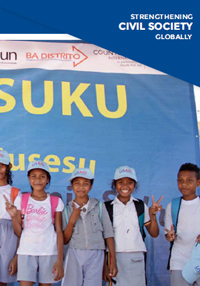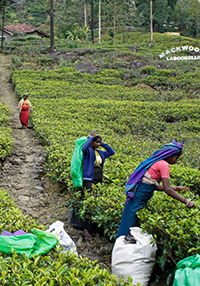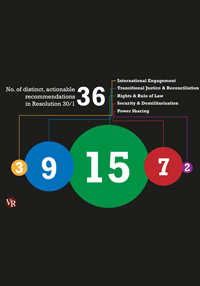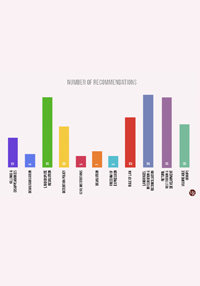The Civil Society Organization Sustainability Index (CSOSI) assesses the sustainability of the CSO sector across several countries in different regions around the world. Since its inception in 1997, it has expanded from covering 18 countries in the Europe and Eurasia Region, to covering a total of 72 countries in 2018, in regions including the Middle East, sub-Saharan Africa and Asia.
Statelessness is a phenomenon that has deprived numerous individuals of their dignity, rights and sustainable development. In Sri Lanka, a large population of Tamils residing in the Hill Country was deprived of their citizenship in 1948. Between the 1960s and early 2000s members of the Hill Country Tamil community had their citizenship restored. The study aims to contribute towards a deeper understanding of the developmental challenges faced by the community, and the importance of ensuring that the granting of citizenship is effective, and meaningful.
This is Verité Research’s latest study on the Sri Lankan government’s commitments on reconciliation and accountability. The 40th UNHRC Session began in February 2019, and Sri Lanka’s progress in implementing Resolution 30/1 will be taken up on 20 March 2019. This report analyses the government’s progress in fulfilling all 36 commitments made in UNHRC Resolution 30/1, as at March 2019.
This is Verité Research’s latest study on the Sri Lankan government’s commitments on reconciliation and accountability. The ongoing UNHRC Session began on 26 February 2018, and will include a discussion on Sri Lanka’s progress in this regard. This report analyses the government’s progress in fulfilling all 36 commitments made inUNHRC Resolution 30/1, as at 26 February 2018.
Criminal justice institutions re-victimise children. This report details the legal and institutional challenges impeding justice for children in Sri Lanka. The report also details specific recommendations to divert children away from the justice system, and prevent institutionalisation being a matter of first resort.
This briefing note is Verité Research’s latest study on the Sri Lankan government’s commitments on reconciliation and accountability. It assesses progress in the fulfillment of 36 commitments made in UNHRC Resolution 30/1, co-sponsored by Sri Lanka in September 2015.
This report is Verité’s latest study on the Sri Lankan government’s commitments on reconciliation and accountability. The report assesses progress in the fulfillment of 36 commitments made in UNHRC Resolution 30/1 (co-sponsored by Sri Lanka) and in the implementation of 189 recommendations of the Lessons Learnt and Reconciliation Commission (LLRC).
This report analyses the legal and policy frameworks applicable to domestic workers in Sri Lanka. The report uses global standards of decent work to offer a fresh perspective on the problem and aims to outline a strategy for sustainable reform in Sri Lanka.
Verité Research recently conducted interviews with 22 members of civil society organizations to assess the quantity and quality of research on the subject of domestic workers’ rights in Sri Lanka. While measuring and evaluating current literature on domestic workers, this report sets out a four-pronged hypothesis on why domestic workers’ rights have not featured on the civil society agenda in Sri Lanka.
LLRC Implementation Monitor: Statistical and Analytical Review No. 3 is Verité Research’s latest study on the Lessons Learnt and Reconciliation Commission (LLRC). This report is the outcome of twelve months of monitoring the implementation of the LLRC’s recommendations. The report examines in detail the implementation status of 189 LLRC recommendations. It also provides an initial quantitative analysis of 563 complaints made before the LLRC during its public hearings.






